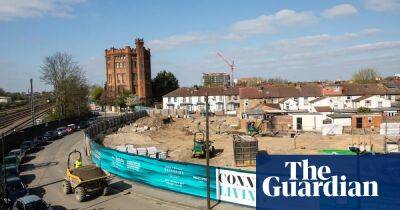Losing the plot: fears huge rent rises will price many out of UK allotments
T he list of what Paul Cooper grows in his allotment in St Helens, Merseyside, could fill a greengrocer’s stock list. There is oriental mustard and rocket, peas, broad beans and jerusalem artichokes. The early season potatoes are in the ground; the strawberry plants are budding, and a mature apple tree that predates the allotment’s creation in 1969 will be harvested later this year.
But Cooper, 51, worries his lifelong passion is under threat. He is one of many facing huge increases in allotment rents despite a cost of living crisis that has squeezed Britons’ budgets. Some have seen rent demands approaching 500%, prompting petitions to reverse the decisions and leading some to consider abandoning their plots.
Before Cooper got his plot in 2008, he helped his 84-year-old mother with her allotment nearby. Now he visits his plot up to six times a week not only to grow but to socialise, with balmy summer barbecues bringing together a community that is a mix of genders and ages.
Cooper says authorities are underestimating the human cost of rent demands – which may put pressure on mental health services – and the community value of producing locally grown food.
“Councillors seem to fail to see that, for the vast majority of tenants, allotment gardening is their recreational activity,” he says. “It helps to alleviate social isolation and has health and wellbeing benefits beside helping many to mitigate the affects of the current cost of living crisis on their household budgets.”
There are an estimated 330,000 allotment plots in the UK, most of them council-owned. In 2021, the average wait for an allotment was two years and eight months, with a waiting list of about 100,000 people. This level of demand may explain councils’
Read more on theguardian.com














